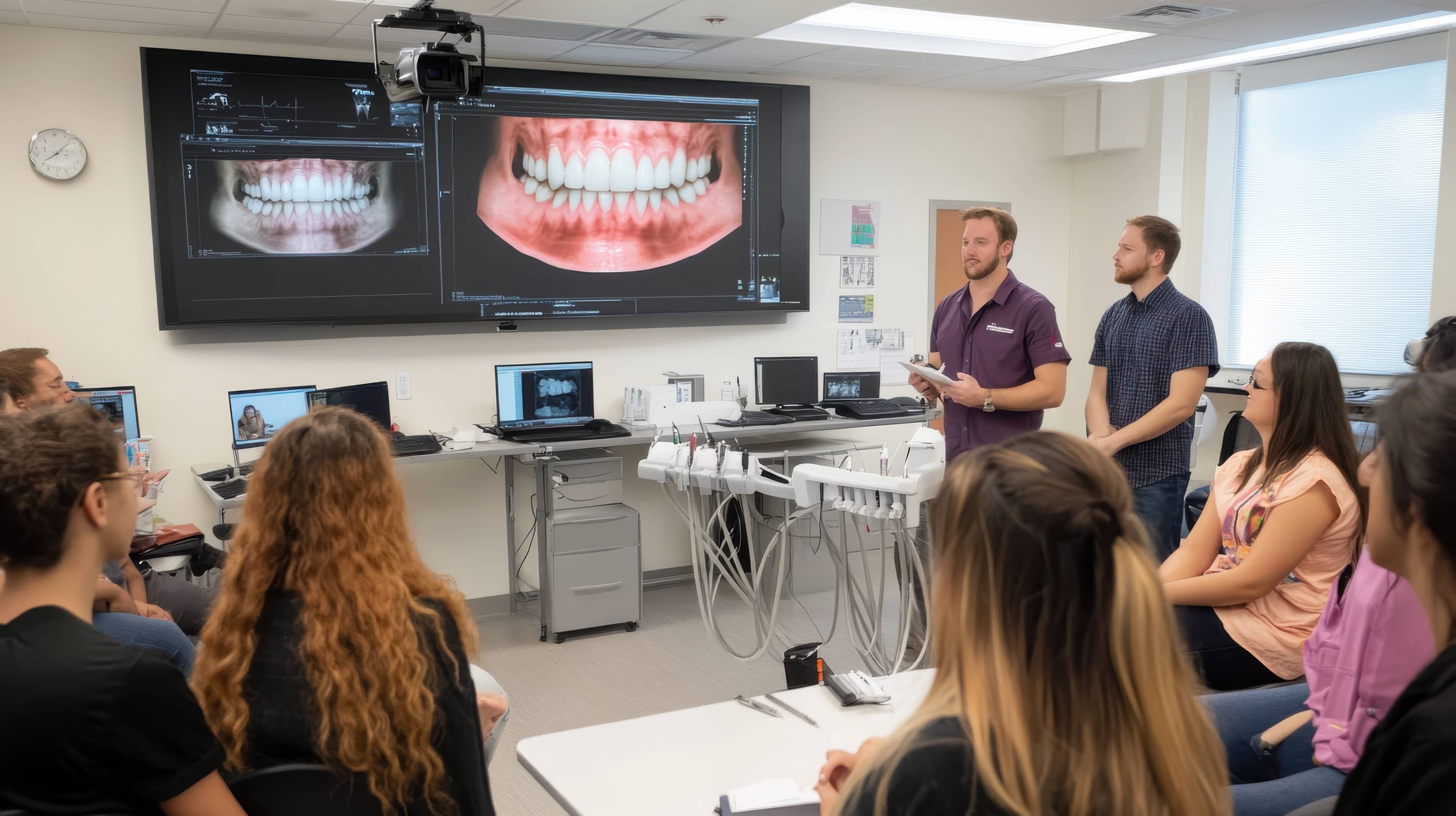Digital Dentistry: AI in the Practice.
In this blog we take a look at how tech-powered with AI could benefit dentists and patients alike.
Date
7/1/2024
Sector
Insights
Health
Fitness & Wellbeing
Subject
Trends
Article Length
2 minutes

Streamlining Design.
Share Via:
The integration of AI is reshaping numerous industries, and dental practices are no exception. As we look to the future, AI promises to revolutionise dentistry, offering benefits that span from improved patient care to enhanced administrative efficiency. Here’s a glimpse into how dental technology is evolving and what it means for both patients and dental professionals.
The Impact of AI on Diagnosis and Treatment Planning
One of the most significant changes AI brings to dentistry is in diagnosis and treatment planning. AI algorithms can now annotate specific areas of interest on dental images, providing tailored treatment recommendations. These annotations integrate seamlessly into the clinician’s workflow, allowing dentists to consider AI-recommended treatments during diagnosis. This not only aids dentists in making more accurate diagnoses but also helps patients understand their conditions better.
Visual aids, such as AI-generated overlays on X-rays, add colour and quantification to dental images, making it easier for patients to visualise issues like decay and bone loss. This transparency fosters trust between patients and their providers, increasing patient engagement and compliance with recommended treatments.
Building Patient Trust Through Transparency
Most patients struggle to interpret traditional X-rays. AI technology can bridge this gap by providing clear, understandable visualisations of dental conditions. These visual aids not only enhance patient comprehension but can also instil confidence in the dentist's recommendations. By adding an element of third-party objectivity to diagnoses, AI overlays help patients understand why certain treatments are necessary and why they should be undertaken within specific timeframes while reducing dentist’s workloads in consultations.
Enhancing Administrative Efficiency
AI’s impact extends beyond clinical care to the administrative side of dental practices. Virtual assistants and chatbots, powered by natural language processing algorithms, can handle inquiries around the clock, automate scheduling, send appointment reminders, submit insurance claims, and process digital payments. This automation reduces waiting times, streamlines administrative workflows, and empowers patients with instant access to information, ultimately improving the overall patient experience.
Predictive Healthcare: A Glimpse into the Future
The future of dental technology is not just about improving current processes but also about predictive healthcare. AI has the potential to analyse vast amounts of patient data, including medical and dental histories, demographics, genetics, and habits. This comprehensive analysis can predict potential health risks, allowing dentists to collaborate with patients to prevent the onset or progression of diseases.
The implications of predictive healthcare are profound. Instead of treating diseases reactively, we can manage health proactively, which can lead to significant cost savings. The National Institutes of Health estimates that AI applications could reduce annual healthcare costs in the United States by $150 billion by 2026. This proactive approach means patients will require less treatment and fewer hospitalisations, shifting the focus from treatment to prevention.
Embracing the Future of Dentistry
The integration of AI in dental practices marks a paradigm shift, positioning technology as a transformative force rather than just a tool. The future possibilities of predictive healthcare open doors to a new era of preventive medicine. From scheduling solutions and insurance claim verification software to advanced X-ray analysis, AI offers a range of technologies that can significantly impact dental practices.
To get started, dental practices should identify manual processes that consume time and explore AI solutions to automate these tasks. Most AI providers offer complimentary consultations to tailor their technology to the specific needs of a practice. Including team members in the decision-making process can also help ensure successful implementation.
As dental practices continue to innovate and embrace AI, the ultimate beneficiaries are the patients. Enhanced healthcare literacy and a more active role in dental care can lead to a personalised, empathetic, and empowering patient experience.